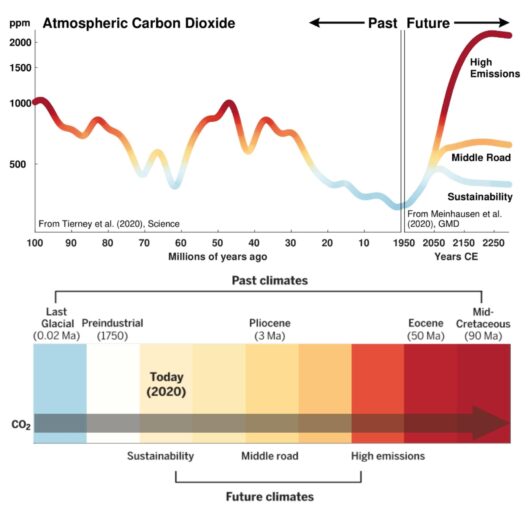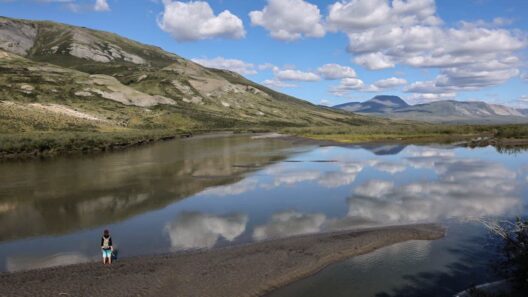Global warming is not merely a scientific dilemma; it is intricately entwined with the political landscape of our time. Various ideologies possess distinct viewpoints regarding climate change, which shapes their policies and public discourse. This essay explores how leftist, rightist, and centrist political ideologies approach global warming, while inviting consideration of the broader implications of their respective strategies.
To underscore the significance of this issue, let us pose a provocative question: How do differing political ideologies influence the effectiveness and viability of strategies aimed at combating global warming? This inquiry serves as a lens through which we can scrutinize the myriad responses to a looming environmental crisis.
In the realm of leftist ideologies, particularly those rooted in progressive or eco-socialist frameworks, there exists a prevailing belief in the intrinsic connection between environmental degradation and social justice. Advocates assert that the impacts of climate change disproportionately afflict marginalized communities, thereby necessitating a focus on equity alongside environmental sustainability. In this context, policy proposals often include comprehensive environmental regulations, advocacy for renewable energy sources, and a broader transition toward a green economy.
Notably, this ideological stance culminated in the Green New Deal, a visionary approach that not only seeks to mitigate climate change but also aims to stimulate job growth and economic resiliency. Here, the rhetoric surrounding climate action exhibits a clear alignment with social equity, invoking notions of moral responsibility and intergenerational justice. However, while such proposals are ambitious, they also encounter political gridlock and resistance from factions that perceive these measures as economically burdensome failures.
On the other end of the political spectrum, right-wing ideologies often adopt a more skeptical view of climate change. In many conservative circles, global warming is framed as an aspect of the natural order, with proponents arguing that climate variability has existed long before industrialization. This perspective frequently manifests in calls for limited government intervention, emphasizing free-market solutions over regulatory frameworks. The belief in technological innovation as a panacea allows for a cautious approach that favors adaptation over mitigation.
Take the case of carbon trading markets and incentivizing private sector investment in clean technologies. These strategies signal a penchant for market-driven solutions, appealing to an ideological commitment to capitalism and individual entrepreneurship. Nevertheless, such positions can lead to a paradox: while professing a commitment to environmental stewardship, these ideologies may inadvertently exacerbate climate issues by delaying comprehensive regulatory measures deemed too intrusive.
Additionally, hybrid ideologies, often labeled as centrism, present a more pragmatic approach to combating climate change. Centrists tend to advocate for balanced solutions that incorporate lessons from both liberal and conservative ideologies. This middle-ground perspective seeks to engage a broader coalition of stakeholders, emphasizing collaboration across party lines to devise effective climate policies. Proposals may include maintaining fossil fuel usage while simultaneously investing in cleaner technologies as a transitional approach.
This pragmatic approach comes with its own set of challenges. The centrist view risks being perceived as indecisive or ineffective. Critics may argue that a lack of urgency in climate initiatives perpetuates harmful practices. Indeed, the existential threat of global warming calls for immediate action rather than half-measures and compromises that may dilute overall efficacy.
As political discourse continues to evolve, an underlying tension emerges: the balance between economic growth and environmental sustainability. Those who advocate for ferocious economic expansion often prioritize short-term gains over the long-term benefits of sustainability. This creates a fundamental paradox. How can we champion progress if it comes at the expense of the planet’s health?
Moreover, existing frameworks for discussing climate change frequently neglect nuanced narratives that emphasize global interdependence. For example, developing nations often confront formidable challenges in combating the effects of global warming, largely attributable to historical injustices and colonial exploitation. Progressive ideologies tend to highlight these dynamics, advocating for robust financial support and technology transfer as crucial components of any successful climate action strategy. Conversely, conservative ideologies may prioritize national self-interest, leading to geopolitical tensions and hampering cooperative efforts on a global scale.
The complexity of how different ideologies address climate change also exacerbates challenges surrounding public perception and education. For instance, misinformation campaigns often skew the scientific consensus on climate change, which can create a rift between scientific communities and political leaders. Consequently, we witness varying degrees of public engagement, with individuals in some political factions demonstrating apathy toward climate action, viewing it instead as a partisan issue.
To navigate this politically charged terrain effectively, environmental advocates must engage with a broad audience across ideological lines. Coalitions that bridge gaps between liberal and conservative perspectives can amplify voices and build momentum for actionable policies. Imagine crafting a “climate bill of rights,” one that prioritizes both environmental stewardship and economic opportunity. Wouldn’t that foster a greater sense of shared responsibility among opposing factions?
In conclusion, the politics of the planet are shaped profoundly by the ideological contours of our global community. As we grapple with the sprawling implications of various political responses to global warming, it becomes increasingly evident that ideological rigidity poses a challenge. The urgency of the climate crisis demands a departure from entrenched positions, advocating instead for collaboration, innovation, and comprehensive solutions that prioritize our planet’s health alongside humanity’s socio-economic well-being. The question remains: can different ideologies find common ground in addressing such a profound existential threat? Only time will tell.





